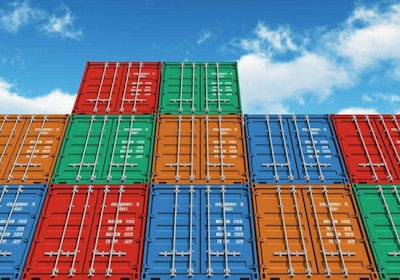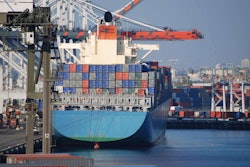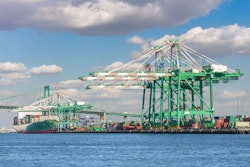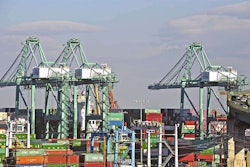
The Port of Oakland anticipates it will take up to eight weeks for West Coast ports to return to normal, while the U.S. Department of Agriculture reports hearing the same from exporters. Still, some experts say six months is more realistic.
The Marine Exchange of Southern California reported 29 ships anchored in area ports March 4, six fewer than a week ago.
Port congestion ramped up during the final months of negotiations between the Pacific Maritime Association and the International Longshore and Warehouse Union. On Feb. 20, the dockworkers union and the organization representing West Coast port employers reached a tentative five-year contract after nine months of talks.
The contract ratification process will begin when the Coast Longshore Caucus meets March 30 to April 3. If these 90 delegates decide to recommend the plan to the rank-and-file, the complete agreement will be mailed to members. The plan then will be discussed at local union meetings before members ratify or reject it at a secret-ballot election.
The Federal Maritime Commission has green-lighted the ports of LA’s and LB’s amended plan to address congestion, transportation infrastructure and pollution through collaboration. Projects include increasing terminal productivity; chassis availability and decreasing truck turn times.
The FMC’s unanimous vote clarifies a two-year-old agreement between the ports to allow exchange of information on projects and programs with multiple stakeholders. The commissioners determined that the ports’ proposal would not unreasonably reduce competition or transportation services.
One result of the collaboration is that Direct ChassisLink, Inc., Flexi-Van Leasing, Inc. and TRAC Intermodal began a new chassis provisioning model March 1.
Eleven of the 13 container terminals at the San Pedro Bay ports, as well as the off-dock rail yards, are expected to participate. The two remaining marine container terminals use their own equipment, but could opt to participate later.
The prolonged dispute between Pacific Coast port employers and labor resulted in collateral damage to companies nationwide. This was reflected in the Federal Reserve’s March 4 roundup of comments from business and other contacts in the nation’s 12 districts.
Chicago’s district reported that West Coast delays had pushed up shipping costs. Dallas district trucking companies attributed a decline in cargo volume to the dispute, while rail and small-parcel shipments increased in January. They were also up year over year. Chicago’s and San Francisco’s districts noted the dispute had negatively impacted exports Numerous San Francisco contacts said perishable products had wasted in containers awaiting shipment.
The union attributed the drop in port productivity to port operation weaknesses, while the association accused workers of staging slowdowns to gain leverage during negotiations.
Two days after the tentative agreement was announced, an arbitrator ruled Port of Oakland longshoremen had conducted an illegal work stoppage. The port’s Feb. 22 dayshift shut down, but work resumed that evening. The PMA said it will address future work stoppages “through the grievance and arbitration process, and, if necessary, in court.’’
Previous longshoremen contract negotiations have been rocky, resulting in some government and business leaders to float ideas about how to mitigate future port disputes.
At a March 3 Senate commerce and transportation hearing, Chairman John Thune said port labor may be better governed by the Railway Labor Act. The act applies to rail and airline workers and provides protection for business to continue during a dispute. Longshoremen currently fall under the National Labor Relations Act, the South Dakota Republican said.











